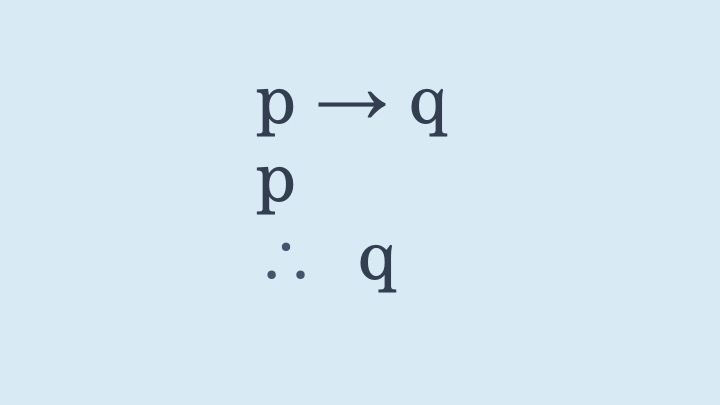Is math made up?
-
-
Replacement Epistemology
I take it that I know that there is a tree over there. It is true, I believe it, and I have good reason to believe it (I am perceiving it right now and my perceptual faculties are functioning properly). Working out what it is for a belief to be true and warranted is traditionally a task for philosophy. It is a normative domain – what are the necessary and sufficient conditions for warrant? In addition, one needs an account of warrant. Are those conditions internal mental states or external causal relations of some sort? The replacement epistemologist argues that those questions have no normative answer. There is no ‘ought’…
-
Law and Order!
There are many kinds of rules. There are rules of grammar, rules of etiquette, rules of law, and rules of inference. I’m interested in them all, but in this post, the kinds of rules that interest me are the latter kind. Here is one: ‘if p, then q. p. Therefore, q.’ The rule of inference (modus ponens) is said to be truth-preserving. If the premises are true, then it follows that the conclusion is also true. There are two difficulties with law and order when it comes to inference. First, there is the apparent difficulty of explaining what sort of justification we could have for believing such rules of inference.…
-
Ought I Believe?
Do we have doxastic obligations, obligations of belief? Is the sentence, ‘You ought to believe p’ intelligible or does it reduce to ‘p is true’ or ‘I want you to agree with me’? Say ‘S believes p’ is true. It tells us something about S but nothing about whether S ought to believe p. But we do think that there is some connection between belief and true propositions that is somehow related to a person’s obligations. We Can’t Believe Anything We Want We don’t really think that anyone can believe anything they want. We might say, ‘you can believe anything you want,’ but what we mean by freedom of belief…
-
Nativism and Theistic Beliefs
Did we learn the concept of God and infer his existence from some other more basic belief, or did we have the concept of God or a belief in his existence ‘already in the mind’? Such is the issue of nativism: whether there is something in the mind prior to experience. Some theologians and philosophers espouse strongly nativist views. For example, Gordon Clark argues for a form of concept nativism. He argues that human beings have “innate ideas and a priori categories” the purpose of which are for “receiving a verbal revelation, of approaching God in prayer, and of conversing with other men about God and spiritual realities.” Clark makes two…
-
Legal Nativism?
Over at Law and Liberty, John McGinnis favorably quotes legal scholar Harold Berman. Berman apparently told The Fulton County Daily Report (although, I can’t for the life of me find the quotation in its original context): A child says, ‘It’s my toy.’ That’s property law. A child says, ‘You promised me.’ That’s contract law. A child says, ‘He hit me first.’ That’s criminal law. A child says, ‘Daddy said I could.’ That’s constitutional law. McGinnis finds strong support for Berman’s claims in the developemt in of his own daughter: “As my daughter turns two this week, nothing has been more remarkable to this law professor than her already intense relation with rules, vindicating…
- Epistemology, History of Ideas, Philosophical Theology, Philosophy of Education, Philosophy of Language, Philosophy of Linguistics
Classical Education: Loving the Rock of Reality
“Why Latin? Why Logic? Why only ‘great’ books?” Such are the questions levied at the classicist. They are good questions, but the best answers are not found in pragmatics, a list of the benefits of a classical education. Instead, the reason anyone ultimately prefers a classical approach to education is that she holds to a classical worldview. I say ‘ultimately’ because pragmatic answers don’t count for nothing. One cannot help using them in class to garner support for Latin verb endings. “Throughout history, the best authors were great Latinists” I said the other day. I had in mind one student whose mother had told me that she would like to…
-
Beliefs and Choice
I have a whole lot of beliefs rummaging around my mind. I believe, for example, that I am here at this moment writing this blog while listening to some funk artist called Kyle Hollingsworth on Spotify. I believe I grew up in England and was married in Minnesota in 2003 on a day when it was twenty below. I might be mistaken about what I believe, but I am not mistaken that I believe those things. Beliefs don’t float around in the air ready to be caught. Rather, I have beliefs. If there were no people, no minds, there would be no beliefs. Other things, like propositions, are not dependent upon my mind being…




